
Tuesday, 15 September 201508:00 | Registration and Continental Breakfast | |
Session 1 | | Session Chair: Aaron Beeler, Assistant Professor, Boston University, United States of America |
| | 09:00 | Welcome Remarks from Chair of the Flow Chemistry Society
Ferenc Darvas, Chairman, Flow Chemistry Society, Switzerland
| 09:15 | 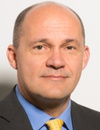 | Keynote Presentation Hazardous Chemistry Meets Microreactors
C. Oliver Kappe, Professor and Scientific Director, Center for Continuous Flow Synthesis and Processing, University of Graz, Austria
Contributions from our research group in the field of continuous flow processing will be highlighted. Emphasis will be given to highly atom efficient and process intensified chemical transformations useful for the synthesis of APIs or key intermediates that are often too hazardous to be executed in a batch reactor. These involve azide, diazomethane and nitration chemistry, selective precious metal-free olefin and nitrogroup reductions. |
| 10:00 | Recent Flow Chemistry Applications in Industry
Heather Graehl, Director of Sales North America, ThalesNano, United States of America
Thalesnano is the industry leader of continuous flow reactors and works closely with industrial and academic customers in enabling research and manufacturing across the globe. Recent results from Thalesnano internal R&D as well as external projects will be highlighted. | 10:30 | Coffee and Networking in Exhibition Hall | 11:00 | Expanding Possibilities for Compound Library Generation in Flow with Immobilized and Exchangeable Reagents
Noah Tu, Senior Scientist, Abbvie Inc, United States of America
A custom-built modular flow reactor has been developed to support our compound library production in integrated flow-purification platforms. This reactor opens the way to chemical transformations previously not readily achievable with our flow chemistry systems. | 11:30 | The Medicines for All Initiative: A Flow-based Synthesis of Nevirapine
Frank Gupton, Floyd D. Gottwald Chaired Professor, Virginia Commonwealth University, United States of America
A continuous process has been developed for nevirapine, the active ingredient in a widely prescribed treatment of AIDS. The new process includes the continuous preparation of the two key pyridine precursors. | 12:00 | 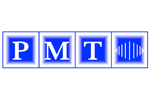 Technology Spotlight: Technology Spotlight:
Recent Progress in Microwave Flow Reactor Technology
Akira Tomita, President, Pacific Microwave Technologies
We discuss a new compact microwave flow reactor and its key benefits in organic synthesis. The process conditions can be optimized quickly, and stable operation over 1000 cycles at ~Kg/day production level has been demonstrated.
| 12:15 | Lunch and Networking in Exhibition Hall | 13:30 | Poster Viewing Session | |
Session 2 | | Session Chair: Frank Gupton, Floyd D. Gottwald Chaired Professor, Virginia Commonwealth University, United States of America |
| | 14:00 | 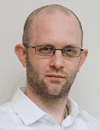 | Conference Chair Photochemical Reactions in Flow
Aaron Beeler, Assistant Professor, Boston University, United States of America
This lecture will focus on the development of a flow photochemical platform and a number of photochemical reactions that have been explored in the Beeler Research Group. |
| 14:45 | Continuous-flow Synthesis in Milli-reactors using Microwave Heating
Lubabalo Mafu, Research Scientist, Nelson Mandela Metropolitan University (NMMU), South Africa
We report a microwave-assisted continuous-flow synthesis of di-ester derivatives. The method involves a combination of a milli-reactor operation and microwave heating as an energy source. This combined strategy allows one to have an accurate control over the reaction temperatures and substrate residence times. Moreover, it also employs a polymer-supported scandium triflate (PS-Sc(OTf)3) as an environmentally friendly catalyst. | 15:15 | Coffee and Networking in Exhibition Hall | 16:00 | ADC Synthesis in Flow
Graham Jones, Professor/Head, Northeastern University, United States of America
The use of continuous flow technology for the synthesis of protein bioconjugates will be presented. In addition to reagent proteins, monoclonal antibody conjugates will also be highlighted. | 16:30 | Flow Reactors with Polymeric Membranes for Catalytic Aerobic Partial Oxidation Chemistry in Pharmaceuticals and Specialty Chemicals
Thatcher Root, Professor of Chemical and Biological Engineering, University of Wisconsin, United States of America
Polymer-based membranes using inexpensive,
commodity tubing enable implementation of catalytic aerobic oxidation in flow.
Matching gas permeation with reaction kinetics allows safer use of elevated
oxygen pressures while avoiding solvent flammability concerns. | 17:00 |  Drinks Reception Drinks Reception
|
Wednesday, 16 September 201508:30 | Continental Breakfast | |
Session 3 | | Session Chair: C. Oliver Kappe, Professor and Scientific Director, Center for Continuous Flow Synthesis and Processing, University of Graz, Austria |
| | 09:15 | 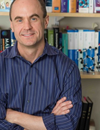 | Keynote Presentation Multistep Continuous Flow Synthesis
Tim Jamison, Professor, Massachusetts Institute of Technology, United States of America
We will discuss the impacts and opportunities of continuous flow synthesis, particularly multistep processes. |
| 10:00 | Photocatalysis in Flow
Corey Stephenson, Professor of Chemistry, Willard Henry Dow Laboratory, University of Michigan, United States of America
This talk will focus on the development of photoredox catalysis in continuous flow. | 10:30 | Coffee and Networking in Exhibition Hall | 11:00 | Integrated Liquid-liquid Separator and its Uses in Flow Chemistry
Andrea Adamo, Chief Executive Officer, Zaiput Flow Technologies, United States of America
Successful implementation of flow chemistry based processes requires the availability of adequate tools for chemical work-up. Here we present a liquid-liquid separator designed for flow chemistry. After discussing its principle of operation and properties, we will provide some examples of use drawn both from our own work and current literature. The example will cover cases of extraction, multistep synthesis and solvent switch. | 11:30 | 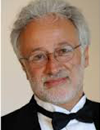 | Conference Chair Design, Validation and Evaluation of a Bioaffinity based Flow-biochemistry Device
Andras Guttman, Adjunct Professor, Northeastern University, United States of America
Flow-biochemistry utilizes continuous flow biochemical devices for biocatalysis, biotransformation and biochemical interaction based flow-analytical systems. Design of flow-biochemistry based rare cell capture systems was supported by computational fluid dynamics modeling. Trajectories of yeast cell movement were followed under a microscope and compared with the modeling results. Melanoma cells were used to evaluate the efficiency of the cell capture capability of the bioaffinity based flow-biochemistry microdevice. |
| 12:15 |  Technology Spotlight: Technology Spotlight:
Recent Advances in Flow Chemistry Technology
Billy Bullock, Regional Manager, Syrris Inc
This presentation looks at how specific areas of flow chemistry have developed over the last 2-3 years, both from a chemistry and technology viewpoint, focusing specifically on electrochemistry in flow.
| 12:30 | Lunch and Networking in Exhibition Hall | 13:30 | Poster Viewing Session | |
Session 4 | | Session Chair: Andras Guttman, Adjunct Professor, Northeastern University, United States of America |
| | 14:00 | Flow Hydrogenations and Oxidations with Heterogeneous Catalysts
Joel Hawkins, Senior Research Fellow, Pfizer Global Research and Development, United States of America
Flow hydrogenations and aerobic oxidations using
heterogeneous catalysts in packed bed reactors will be described for the preparation of pharmaceutical intermediates. | 14:30 | Progress of Microreaction Technology: from Lab to Industrial Applications
Guangwen Chen, Professor, Dalian Institute Of Chemical Physics, China
The report mainly illustrates the development and application of the microreaction technology with several examples of industrial applications, such as sulfonation, nitration and nanomaterials. | 15:00 | Coffee & Networking in Exhibition Hall | 15:30 | Catalysis and Continuous Flow Strategies in Macrocyclization
Shawn Collins, Full Professor, Université de Montréal, Canada
The combination of continuous flow techniques and a phase separation strategy allows for macrocyclizations to be conducted at high concentrations using low catalyst loadings and with short reaction times. | 16:00 | 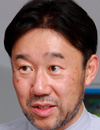 | Keynote Presentation Fine Organic Synthesis by a Flow Method
Shu Kobayashi, Professor, The University of Tokyo, Japan
Organic synthesis by a flow method and some examples of its use for the total flow synthesis of active pharmaceutical ingredients (APIs) are described. |
|
|

 Add to Calendar ▼2015-09-15 00:00:002015-09-16 00:00:00Europe/LondonFlow Chemistry CongressFlow Chemistry Congress in San DiegoSan DiegoSELECTBIOenquiries@selectbiosciences.com
Add to Calendar ▼2015-09-15 00:00:002015-09-16 00:00:00Europe/LondonFlow Chemistry CongressFlow Chemistry Congress in San DiegoSan DiegoSELECTBIOenquiries@selectbiosciences.com